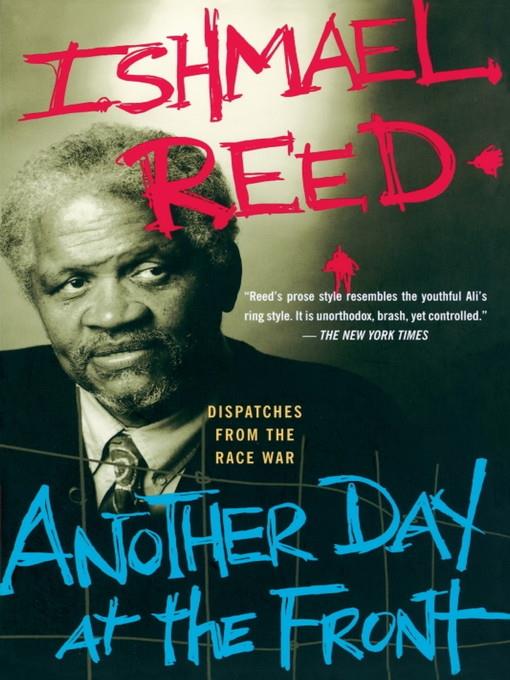
Another Day At the Front
Dispatches From The Race War
کتاب های مرتبط
- اطلاعات
- نقد و بررسی
- دیدگاه کاربران
نقد و بررسی

November 11, 2002
Despite the rabble-rousing subtitle, remarkable novelist and critic Reed offers far more than the erudite, colloquial confrontationalism with which he is often pigeon-holed. Essays sometimes focus on the virtues of crucial cultural figures, like Quincy Troupe, or contest divisive works by black intellectuals, such as Nigger. But the book, communicative and direct, remains at every turn acerbically fixed on peeling back everything that continues, extends or disguises the various forms of white-on-black violence, which remains, for the insightful and uncompromising Reed, a fundamental fact of the black experience in the United States.

December 1, 2002
Returning to the essay form for the first time since Airing Dirty Laundry in 1993, poet Reed gathers a series of original and revamped essays from recent years on a variety of topics, from the Confederate flag to NPR, with the underlying theme that African Americans have been living in a police state for the past 300 years. These brief essays, written in Reed's lively hit-and-run style, are certainly provocative, particularly as he jabs at many well-known critics both black and white, including George Will, Henry Louis Gates Jr., and Mona Charen. With such wide coverage, every reader is likely to find something here to disagree with, but Reed consistently supports his arguments. A welcome addition to the corpus of African American collected opinion pieces, including Shelby Steele's A Dream Deferred and Cornel West's Race Matters. Recommended for all academic and public libraries.-Anthony J. Adam, Prairie View A&M Univ., TX
Copyright 2002 Library Journal, LLC Used with permission.

December 15, 2002
Reed, an essayist and novelist who is quite iconoclastic and closely identified with progressive movements, offers a remarkable work on race in America. This series of essays provides historical context to contemporary realities, sparing no one in his sharp criticism in the affairs of race. From the critics of Booker T. Washington to John C. Calhoun, a U.S. vice-president and apologist for slavery, and some of his contemporary spiritual brethren, Reed exposes their innards--stench and all. Despite Reed's progressive political tag, he gives no pass to feminists, particularly Susan Brownmiller, who inferentially justifies the lynching of black teenager Emmett Till in Mississippi in the 1950s for whistling at a white woman, while overlooking similarly misogynistic actions and attitudes by white men, for example tennis player John McEnroe. Reed also takes on the new black conservatives, in their blame-the-victim logic that tends to ignore other causes of black underachievement. Reed is an exceptional cultural critic, seeing America's flaws and daring it to reach its full potential.(Reprinted with permission of Booklist, copyright 2002, American Library Association.)

























دیدگاه کاربران